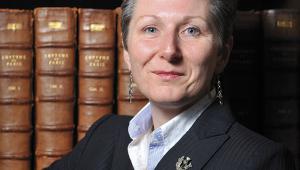07 January 2005
Government policy decisions could become subject to greater public debate as this week's Freedom of Information Act opens up new areas of the Whitehall machine, an FoI commissioner has predicted.
Under the Act, information and statistics that inform policy will be open to public scrutiny while advice from officials and advisers will be kept under wraps under a qualified exemption.
In an interview with Public Finance, assistant commissioner Phil Boyd said that, over the long term, the practice of taking policy decisions in private would be eroded.
'In the next five to ten years we would need to look how far we have gone beyond policy formulation going on inside closed doors,' he said. 'We can have a robust debate without throwing a policy off course. This is a long-term aspect of the Act.'
Departments have already begun to reassess the way they put together factual and statistical analysis in internal papers and policy advice from officials. The recording of the two in most departments, including the Treasury, will become distinctly separate.
Boyd said the change in being able to track how and why the government makes a policy decision would strengthen lines of accountability. Given allegations of sleaze surrounding aspects of both this government and the previous Major administration, this could improve public trust in politicians in the long term and open policy to public debate much earlier.
However, Boyd is not ruling out some exempted advice being disclosed after a public interest test. 'We recognise that there is sensitivity. Having said that, it is a qualified exemption and there is an acceptance that we may need to have a debate. This could flush out the best possible view and might end up with a policy that commands more public respect and understanding.'
Boyd, who will oversee complaints, indicated that the first few months of the Act would be crucial, as the FoI's rulings on what warrants disclosure would set precedents for others in the public sector. He warned that those applying the public interest test would be expected to do so 'robustly'. If there were an even 50–50 split on whether to retain information or disclose, there was a clear presumption in favour of openness, he said.
PFjan2005




















